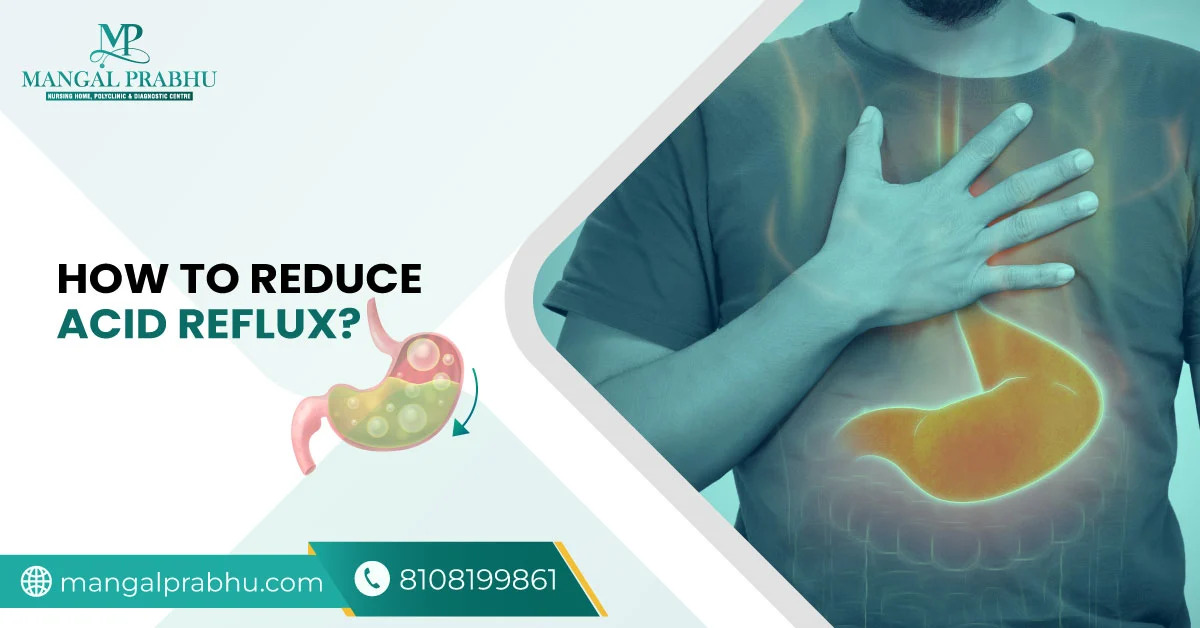
Life after Acid Reflux Surgery
Life with chronic heartburn, a burning sensation in the throat and stomach, and other symptoms of gastroesophageal reflux disease (GERD) can be challenging. In some cases, the symptoms are so severe that they interfere with your daily life. If you have tried all non-invasive procedures, like dietary adjustments and medication, but see no relief, it’s time to discuss acid reflux surgery in Navi Mumbai with a specialist.
Preparing for Surgery
The two most common surgical procedures for GERD are Fundoplication (creating a sphincter muscle at the lower end of the esophagus to prevent the stomach content from going back up) and LINX (using magnetic beads to tighten the sphincter).
Your surgeon will order tests like endoscopy and manometry to identify the severity of the GERD and determine the best surgical procedure. On the days leading up to the surgery, you may be put on a liquid and soft diet to avoid pressure on your digestive system.
The Recovery Process
The recovery period can vary depending on the patient’s health and the type of surgery. If the surgery is laparoscopic, you can expect faster healing and shorter hospital stays. Still, 1-3 days in the hospital are necessary, as your doctor will closely monitor your vitals and evaluate your ability to eat, drink, and digest before giving a discharge.
Pain and mild discomfort after surgery are common. Your doctor will prescribe medication to relieve pain at the incision site. You can expect to return to normal activities within 4-6 weeks. Avoid heavy lifting or strenuous exercises until your doctor clears you for it.
Dietary Adjustments
Your doctor will give detailed instructions on what to eat and avoid. Generally, it’s advisable to start with a liquid diet, preferably food that’s easy on your digestive health, and gradually transition to your regular diet. During recovery, your doctor will advise you against carbonated beverages and acidic food.
Here’s what can help speed up your healing:
- Eat smaller, more frequent meals
- Stick to the liquid, like fruit and vegetable juices, in the first few weeks
- Chew properly and eat slowly
- Slowly transition to solid food, but avoid acidic, raw, undercooked, and too-hard-to-digest food.
- Keep yourself hydrated
Long-term Lifestyle Changes
Acid reflux surgery has a positive prognosis. There’s a good chance you will find significant relief from the GERD symptoms after surgery. Although you may be on certain dietary restrictions, most people can eat like usual and have their favorite foods in moderation a few weeks post-surgery.
Some weight loss after GERD surgery is normal since you’ll be on a liquid diet. The best part is that heartburn, stomachache, the risk of ulcers from frequent episodes of acid reflux, and other symptoms will ease a lot, making your life a lot better. Light exercises, like walking and swimming, are highly advisable, as they help improve digestion post-surgery. Watch out for signs of complications, like fever, bleeding from the incision, and difficulty swallowing after surgery. Keep in touch with your general surgeon in Navi Mumbai, and stay positive.

How to Reduce Acid Reflux?
Most of us have experienced acid reflux at some point. It happens when stomach acid flows backward and irritates your esophagus, throat, and chest.
The burning sensation in your chest, indigestion, and stomach ache are common signs of acid reflux. Although it’s common to have acid reflux after a heavy, spicy meal, some people develop chronic acid reflux called “gastroesophageal acid reflux.
Let’s see what can help you cope with the reflux symptoms and when you should see a general physician in Navi Mumbai for GERD.
Lifestyle Changes
You can effectively manage acid reflux symptoms by making small changes to your eating habits and routine after meals. Here’s what you can do to take control of your health.
i) Maintain a Healthy Weight
Acid reflux is common in overweight and obese people. Excess fat around the belly can cause the esophageal sphincter to malfunction, allowing stomach acid to flow toward the esophagus and throat. Excess weight can also disrupt hormone function, affecting digestion and appetite.
ii) Avoid Trigger Foods and Drinks
Certain foods and drinks can trigger acid reflux. Caffeine-rich food, onion, garlic, tomato sauce, and fried foods are some common triggers, although the type of food that causes acid reflux can vary from person to person. Your best bet is to pay attention to how your body reacts to different foods.
iii) Eat Smaller, More Frequent Meals
The most common cause of acid reflux is overeating. Eating a large meal can worsen your symptoms if you already have GERD. Instead of eating three large meals, you should eat smaller meals frequently.
iv) Elevate Your Head
Do not lie down immediately after eating. Walk for 10-20 minutes and then sleep with your head elevated. This prevents the acid from flowing back into your esophagus.
Home Remedies for Acid Reflux
a) Drink Chamomile Tea:
Chamomile tea has anti-inflammatory properties, is good for digestion, and relieves stress. It can help relieve GERD symptoms.
b) Apple Cider Vinegar:
Despite limited scientific research, people believe diluted apple cider vinegar can relieve upset stomachs and manage acid reflux.
c) Chew Gum:
Chewing gum increases saliva production, soothes acid reflux, and relieves heartburn.
d) Ginger and Licorice:
Ginger, Licorice, and other herbal teas are great home remedies for people with occasional GERD episodes.
Over-the-Counter Medication
If you don’t find relief from home remedies, you can try over-the-counter medication. This mainly includes antacids, which are known for neutralizing acid and offering immediate relief. Note that antacids do not heal inflamed or damaged esophagus.
H2 blockers are for those with frequent episodes of acid reflux. It reduces the acid production in your stomach. People with severe GERD should consider proton pump inhibitors. These are used to block acid production and heal the inflamed esophagus.
When to See a Doctor
Noticing frequent episodes of acid reflux, even after trying home remedies and over-the-counter medication, is a sign you need to get acid reflux treatment in Navi Mumbai. Sometimes, the symptoms of a more severe medical condition are confused with acid reflux. If you experience extreme chest pain with pain radiating to your arm and jaw with shortness of breath, seek medical attention immediately.
